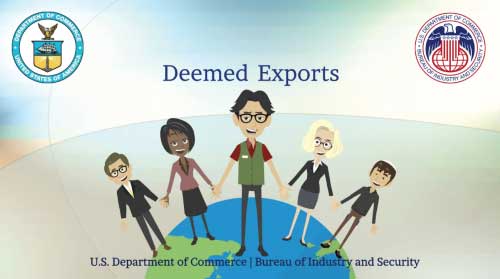Deemed exports
A deemed export refers to the sharing or release of controlled technology or source code to a foreign person within the United States.
Guidance articles
What is a deemed export?
Guidelines for Deemed Export License Applications

Introduction to Deemed Exports
This video provides an introduction to the deemed export provisions of the Export Administration Regulations.
Watch video on YouTube